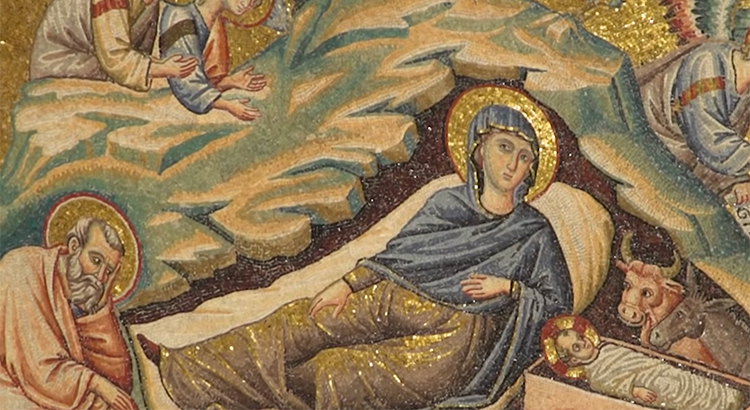Prayer of the Christmas season
The Orthodox churches that follow the Julian calendar celebrate the Nativity of the Lord.
Reading of the Word of God
Alleluia, alleluia, alleluia
Glory to God in the highest
and peace on earth to the people he loves.
Alleluia, alleluia, alleluia
1 John 3,22-4,6
and whatever we ask we shall receive from him, because we keep his commandments and do what is acceptable to him. His commandment is this, that we should believe in the name of his Son Jesus Christ and that we should love one another as he commanded us. Whoever keeps his commandments remains in God, and God in him. And this is the proof that he remains in us: the Spirit that he has given us. My dear friends, not every spirit is to be trusted, but test the spirits to see whether they are from God, for many false prophets are at large in the world. This is the proof of the spirit of God: any spirit which acknowledges Jesus Christ, come in human nature, is from God, and no spirit which fails to acknowledge Jesus is from God; it is the spirit of Antichrist, whose coming you have heard of; he is already at large in the world. Children, you are from God and have overcome them, because he who is in you is greater than he who is in the world. They are from the world, and therefore the world inspires what they say, and listens to them. We are from God; whoever recognises God listens to us; anyone who is not from God refuses to listen to us. This is how we can distinguish the spirit of truth from the spirit of falsehood.
Alleluia, alleluia, alleluia
Alleluia! Alleluia! Alleluia!
Alleluia! Alleluia! Alleluia!
Alleluia! Alleluia! Alleluia!
Alleluia, alleluia, alleluia
John describes the life of a believer as one who entrusts oneself to God and to His Son Jesus, whom He has sent on earth. The Spirit of love that the Father and the Son have poured in the hearts of the disciples will lead them to love one another: "And by this we know that he abides in us, by the Spirit that he has given us." Abiding in Jesus of Nazareth is the discriminant of Christians: "Every spirit that confesses that Jesus Christ has come in the flesh is from God, and every spirit that does not confess Jesus is not from God." With the term "flesh," the apostle means the "weakness" inherent to the human condition, of our innate fragility, which Jesus took on so that he might redeem it. God's love for men and women is truly great, so great that he became weak with us who are weak to bring us to salvation. The choice of the weakness of the flesh sounds scandalous to those who think that salvation depends on human strength, on being powerful in this world, and on having wealth and being self-sufficient and not needing anyone, not even God. Jesus saved us from the high of the extreme weakness of the cross. Jesus' cross has become the source of life and salvation for all. By accepting the cross, Christians learn how to love as Jesus loved: giving his life for others till the end.
